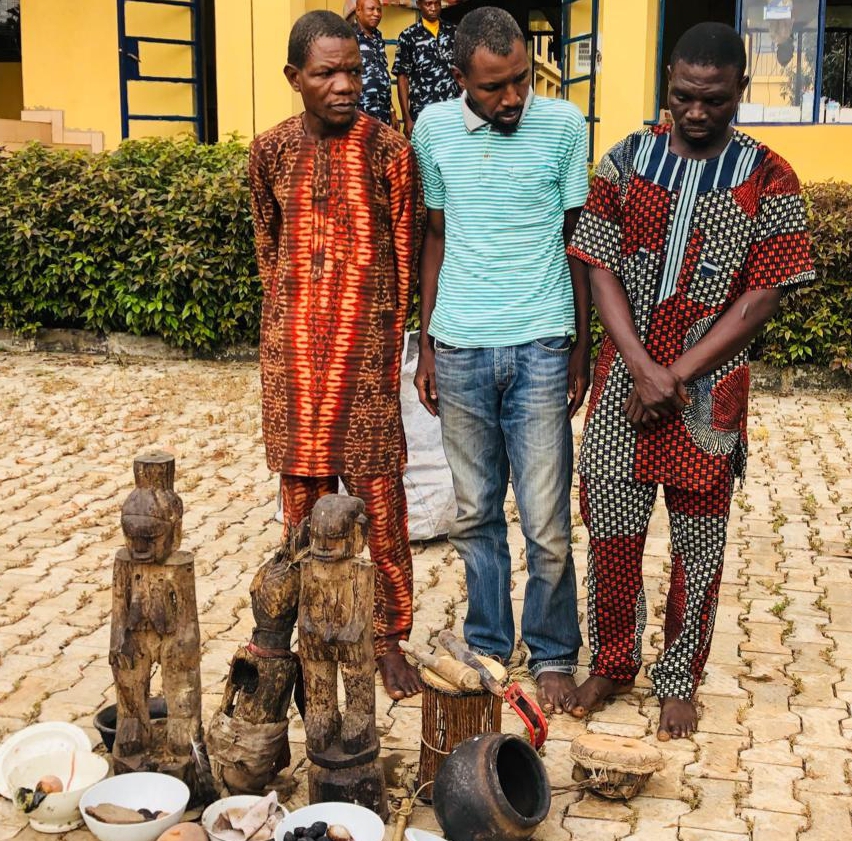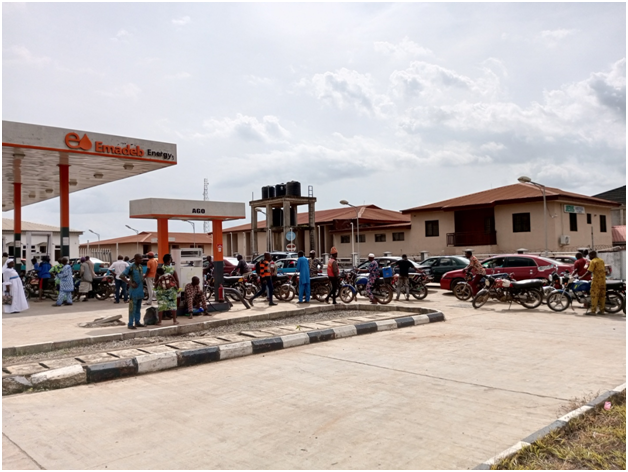How kidnappers push Nigerians into penury and hunger
By Adetokunbo Abiola
|
On July 10 last year, armed kidnappers alleged to be Fulani herdsmen killed Modupe Oyetoso’s fiancée while they were returning from their farm at Igbo-dudu in Lanlate, Oyo State. Around 5 p.m. on the fateful day, the four armed men accosted them, killing Modupe’s fiancé in the process, whisking her away.
Modupe spent two days in her abductors’ den. Her family paid an undisclosed sum of money to the kidnappers before she regained her freedom becoming poor in the process.
Across Nigeria, local criminal gangs have changed their tactics, seeing their victims as a source of income, and the villagers — abandoned by government’s security forces — as disposable, causing them hardship.
As insecurity heightens in Nigeria, poor families of kidnapped victims are taking out loans they cannot pay for ransoms across the country.
In April, a middle-aged woman Asabe Mathew sold everything she owned to pay for the release of her daughter and son.
First, they kidnapped her daughter, then they kidnapped her son; she had to pay the ransom to gangsters before she could get them back. “Right now, I don’t have anything left,” she said. She now takes refuge at the Internally Displaced Persons (IDP) camp at Central Primary School, Sarkin Pawa, Munya Local Government Area of Niger State.
Some of the occupants at the camp still have their relatives seized by the gangsters, because they don’t have the money to pay for the ransom.
Bandits on motor-bikes kidnapped Mohammed Isah’s two sons at Dangunu community in Munya Local Government Area, and he had to escape to the camp for survival.
“They have not been released because we do not have money to pay for their release,” Mohammed said. The bandits asked for millions of naira, a sum quite beyond the hapless man. “Where will I get it from?” he said. He couldn’t even go back to the farm to sell his products, because the bandits would strike at him. It’s a zero sum game for him.
Nigeria has one of the world’s highest rates of kidnap-for-ransom cases. It joins countries such as Venezuela, Mexico, Yemen, Syria, the Philippines, Iraq, Afghanistan and Somalia. Thousands have been kidnapped for ransom over the years. The Nigerian police’s anti-kidnapping squad, introduced in the 2000s, has endeavored to stem the menace, but it’s plagued by a lack of manpower and poor logistics. Overwhelmed, the government looks the other way as bandits extort the poor.
In April, kidnappers apprehended 29-year-old Stephen Shuani, a student at a forestry college. They phoned his mother, Catherine, demanding 500 million naira ($1.31 million) – a princely sum for a teacher who earns a 100,000 naira monthly salary.
“We cannot raise that money,” she said. If she had the money, she said, she wouldn’t have sent her child to a forestry school.
Children who can’t pay the sum demanded by kidnappers could be killed at any time, as the kidnappers don’t have respect for the life of the poor, the weak, and the helpless.
A report, titled The Economics Of The Kidnap Industry In Nigeria, states that poor victims often struggle to pay ransoms because of their relative poverty, and are much more likely to be killed by the actors in the event of failure.
The kidnappers take advantage of the fact that the Nigerian security agencies ignore the rural areas, so they target poor victims there.
In January 2019, 16 villagers were abducted by armed bandits in Zurmi, a local government area in Zamfara State.
The abductors asked for eight million naira, but the community was only able to pay three million naira, and members were plunged to debt after payment of the ransom.
In January this year, Fulani herdsmen abducted Monsuru Aderoju in Igangan axis of Ibarapa area, Oyo State.
The victim, a popular cassava dealer in the community who resides in Oke Agbède, Igangan, was whisked away on a Monday evening.
Two of the suspected kidnappers attended the same prayer session with the victim, but they were not thought to be threats until the incident unfolded.
The recent development brings the total number of kidnap cases in the axis to five in the last three weeks.
When contacted, the spokesperson of the state police command, Olugbenga Fadeyi, asked to be given more time to have updates on the incident.
At least $18.34m to kidnappers by families and the government between June 2011 and March 2020, according to a report by SB Morgen (SBM) Intelligence, a Lagos-based political risk analysis firm.
The motivation of these groups appears to be purely economic, said Ikemesit Effiong, head of SB Morgen (SBM) Intelligence. The high rate of poverty in Nigeria has pushed many to the wall, and the only way they can survive is to engage in bandrity, and it does not matter that their victims don’t have enough money to pay.
Nigeria’s unemployment rate rose from 18.8% in the third quarter of 2017 to 23.1% in the third quarter of 2018. U.N estimates for youth unemployment last year were above 20%.
In June 2019, no fewer than eight persons were kidnapped and one person killed in a bandit attack at Yankaba district of Kaura Local Government Area in Zamfara State.
The Yanbaka district head, Alhaji Buhari Ammani, was kidnapped alongside his three wives and his 13-year-old-son. A young man whose name was given as Siddi Abubakar was killed by the bandits while the names of the three wives were given as Jumai, Asmau and Lami and the name of the 13-year-old boy was given as Kabiru.
Many experts see the sudden rise of kidnapping cartels as a consequence of Nigeria’s major security challenges that emanate from the presence of the deadly terrorist group Boko Haram and the longstanding farmer-herder conflict, which has killed more than 4,000 people since 2011.
According to Lagos-based security analyst Nnamdi Anekwe-Chive the bandits not only recruit locally but also hire assailants from neighbouring countries.
“My studies show there over 1,000 foot paths that can lead you in and out of Nigeria which are not formally protected,” Anekwe-Chive said. “When you join that to lack of political will, its normal to have this crisis.”
As for Modupe Oyetoso, she moons about her future now her fiancé has been killed, with her family reeling financially from the ransom paid to the unscrupulous kidnappers.










